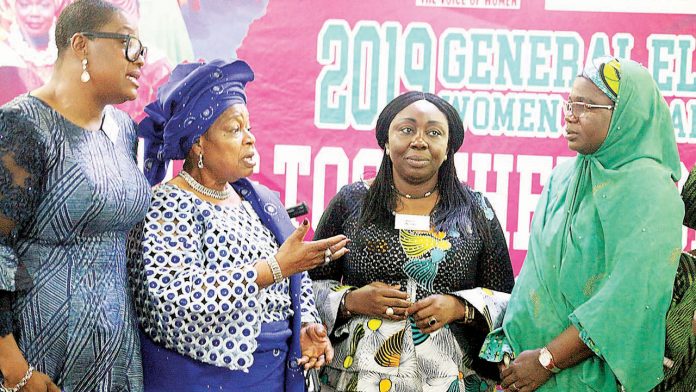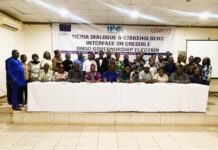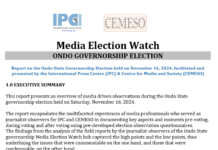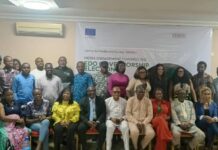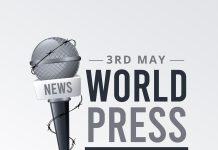While some forms of discrimination against women and girls are diminishing, gender inequality continues to hold women back and deprive them of their basic rights and opportunities. The International Women’s Day (IWD) marked the other day, which drew the attention of the world to the plight of the female folk rightly highlighted the gender inequality challenge in the land.
The first IWD occurred in 1911, supported by over one million people. Today, IWD belongs to all groups collectively everywhere. IWD is not country, group or organisation specific. It is celebrated to draw attention to the challenges women and girls face and the discrimination they suffer, which do not allow them to exercise fully their fundamental civil and political rights. These ultimately deny countries the opportunity to draw on the full range of human resources available for its progress and make the needs of women’s and girl’s ‘invisible’ in policies. These may account for why a former UNICEF ambassador Audrey Hepburn, once lamented that, “there is a dreadful apartheid of gender going on in the developing world.”
Specifically, in many parts of the developing world including Nigeria, women and young girls face various challenges. Millions suffer exploitation, violence, abuse, discrimination and harmful traditional practices such as female genital cutting and food taboos; their childhood lost and their future endangered. As young girls, they carry the heavy burden of domestic duties and labour – sibling care, cleaning, cooking and minding the house, which rob them of childhood education. These girls who are unschooled are married off early, some by arrangement without their consent and sometimes for cash. Not only do they arrive at marriage starved of education but also with bodies inadequately developed for pregnancy because of food taboos that may have resulted in stunting, with its implications for the size of the pelvis, which in turn make child-bearing hazardous.
Again, they are trafficked internally and across borders for cheap labour cum hazardous jobs and sexual exploitation, which is characterised by early pregnancy not discounting the issue of obstructed labour leading to vesico vaginal fistula (VVF), unsafe and clandestine abortion, and maternal mortality. Also, they suffer domestic violence; live or work on the streets; are unjustly detained and imprisoned, abducted from schools and excluded and secluded after puberty. In addition, millions more are torn apart by rape, HIV and AIDS and drugs.
On politics, although women participate in politics as voters, candidates, politicians, civil society activists, women and men tend to be treated very differently in the political arena, worldwide. Similarly, men and women tend to have vastly different experiences participating in political processes. Generally, men are more visible and dominant.
Looking at Nigeria for instance, available data on the number of women elected in the 1999, 2003, 2007, 2011 and 2015 Nigerian general elections, show that the 2015 elections furthered the negative trend already present in 2011with another decrease in the number of women elected. Specifically, no woman has been elected president, vice president or governor. Moreover, even if there has been a slight increase in the number of women in the Senate (in the period between 1999-2007, there was a slight decline in 2011 and 2015 when only seven women made it to the Senate despite increase in gender advocacy among civil society organisations. A similar trend can be traced for the House of Representatives (HoR), where seven women were elected out of the 360 seats in 1999 and 27 in 2007. However, the number of women began to decline in 2011 (25) and reached its lowest in 2015 (20).
On the other hand, women representation in the parliament of Rwanda accounts for 55 per cent. This makes Rwanda the country with the highest representation of women in the parliament out of 193 countries presented on the global database of Inter-Parliamentary Union (IPU).
Unlike the National Assembly, the States’ House of Assembly (SHoA) elections have shown instead a steady improvement. In 1999, out of the 990 members of the SHoA across Nigeria, 24 (2.4%) were women. After growing over the 2003 and the 2007 elections, women accounted for the 6.9% of SHoA members. However, in 2015, the results published by INEC show that out of the 919 seats contested, women won only 4.6%. What is more? Some states do not have a single female representative in the States’ House of Assembly.
Thus, the proportion of women elected is well below the 30% Beijing Declaration and Platform for Action target and the 35% Nigerian National Gender Policy. This regression occurred despite the fact that Nigeria ratified the Convention on the Elimination of All Forms of Discrimination Against Women (CEDAW) in 1985, which establishes international legal obligations to take all appropriate measures to eliminate discrimination against women, including in regard to political participation.
In addition, Millennium Development Goal (MDG) N0.3 and Sustainable Development Goal (SDG) N0.5 are on achieving gender equality and empowerment of women and girls, aimed at gender equitable development. Obviously, women’s roles in the process of development have been increasingly recognised and their contributions undisputable.
Since, it is now globally accepted that both men and women have complementary roles to play in a nation’s development; IWD gives nations the opportunity to celebrate women, reflect on progress made and call to action for accelerating gender balance in national development.
For 2019 IWD, which comes on the heels of unprecedented global movement for women’s rights, equality and justice; it is an opportunity to consider how to accelerate the 2030 agenda, building momentum for the effective implementation of SDGs N0.5 and N0.4 – ‘Achieve gender equality and empower all women and girls’ and ‘ensure inclusive and quality education for all and promote lifelong learning’ respectively.
While the theme for this year’s IWD is “Think equal, build smart, innovate for change;” the campaign theme is #BalanceforBetter. The campaign theme provides a unified direction to guide and galvanise continuous collective action; and runs all year long, calling for a gender-balanced world. So, the 2019 IWD is an opportunity to transform this theme into action; using integrated and innovative approaches and new solutions that disrupt “the usual” to advance gender equality and empowerment of women, particularly in the areas of social protection, participation in decision making, access to public services and sustainable infrastructure; and celebrate the activists who are working relentlessly to claim women’s rights and realise their full potential.
Therefore, as the IWD celebration euphoria is still with us, Nigeria should ‘think’ gender-balanced boardrooms, gender-balanced government, gender-balanced media coverage, gender-balance of employees, more gender-balance in wealth and gender-balanced sports coverage amongst others. Achieving these requires addressing structural issues such as unfair social norms and attitudes as well as developing progressive legal frameworks that promote equality between women and men.
Essentially, Nigeria should latch on the moment, take action and transform women’s lives because by 2030, nations will not be judged by their military or economic strength, nor the splendor of the capital cities and public buildings, but by the well-being of their peoples: their health, nutrition and education; their ability to participate in decision making that affect their lives; the provisions made for those who are vulnerable and disadvantaged; and the protection that is afforded to the growing minds and bodies of children, especially women and girls.
So, while the various initiatives of the government targeted at engendering the country, such as the creation of the Federal Ministry of Women Affairs and the development of the National Gender Policy is commendable, it is important to ensure policy implementation using a well co-ordinated multi-sectoral approach, targeted at improving the well-being of women and girls. As such, relevant Ministries, Departments and Agencies (MDAs), community and religious leaders, organised private sector, media and NGOs in collaboration with international development agencies should rise up to the occasion, work with the government – to accelerate gender balance in all spheres of human endeavour, aimed at improving women’s social, economic and political status in Nigeria.
Again, women should constitute themselves into a strong pressure group; strategise and use their numerical strength to take up the responsibility of negotiating the implementation of the 30% Affirmative Action at all levels of government as contained in the National Gender Policy. The time to act is now, because a nation that is not engendered is endangered… Let’s build a gender-balanced nation!


